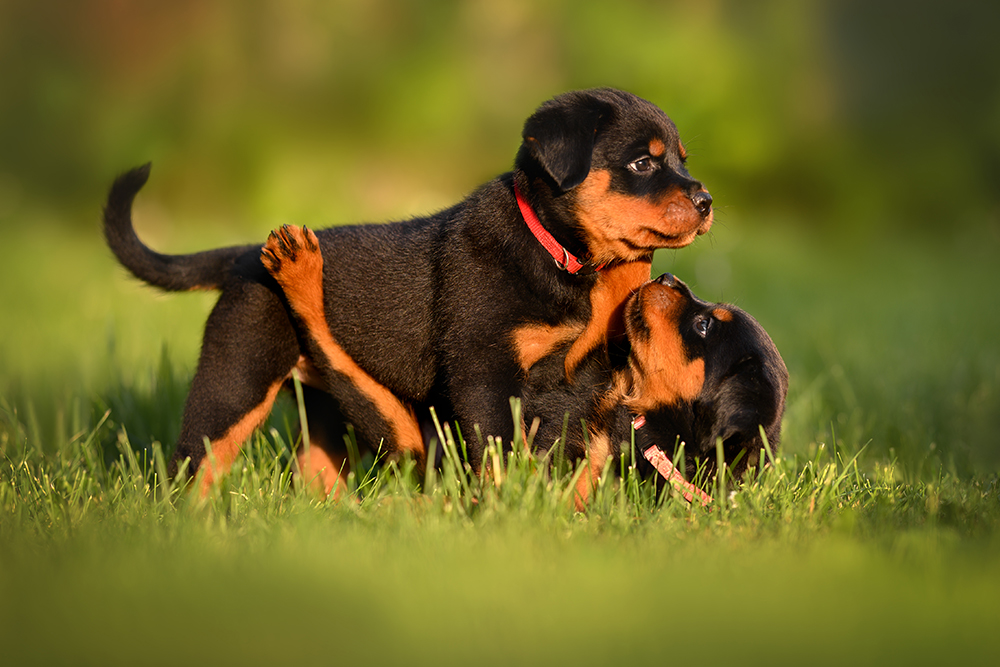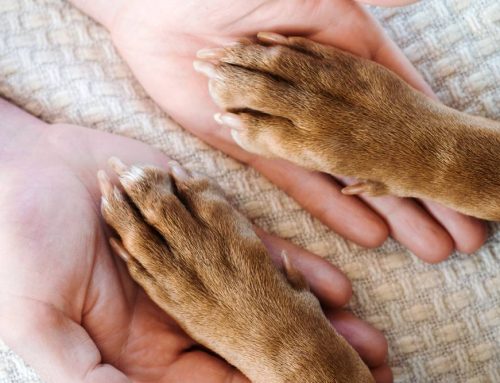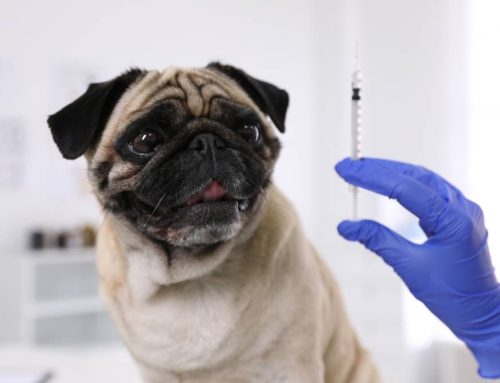The social lives of dogs
In dogs, the ability to cope with new situations is both learned and inherited. Introducing and familiarizing your dog to new experiences – including people, places, and other animals – is called socialization. Positive socialization teaches your dog to respond to and interact to new experiences appropriately and without fear. Socialization is just as important to your dog’s overall health and well- being as a nutritious diet, exercise, and good veterinary care. Just like children, when dogs develop the skills they need to cope with new experiences in a positive way, stress is reduced. This makes for a calmer, more confident, and friendlier dog – as well as a happier owner!
The puppy brain is most inclined to absorb and accept new experiences between 4 and 12 weeks of age. This is one reason that puppies ideally stay with their mother and littermates until at least 8 weeks of age, as during this time they learn core behaviors such as proper social play and bite inhibition. With a new family, this time is perfect for introducing new social experiences. After this initial imprinting stage, a dog can obviously still learn appropriate social behaviors, but it can be more of a challenge. This is largely due to the need to now unlearn inappropriate responses. Therefore, if you can work within the critical learning window, the payoffs will be more immediate.
How to socialize? Take your dog to a wide variety of places with multiple characteristics. For example: a plaza at lunchtime when there are lots of people around, downtown in the evening when there are lots of dogs being walked, and a park in the winter when there is snow on the ground and children on sleds. Look for places that expand your dog’s horizons. Don’t always go to the dog park. Your dog needs to know how to act when you meet an unfamiliar dog on the street or at the store as well.
Try to see things from your dog’s perspective. Notice what your dog notices and then reward appropriate behavior. Take lots of treats, always keep your dog under your control, and keep it positive and pleasant. Don’t force your dog into anything! Keep it mellow and if your dog appears overly anxious or overwhelmed, cut it short. Set up your outings for success. Until you have confidence in your dog’s appropriate response, avoid situations where they may be encouraged to misbehave (such as being swamped by unfamiliar children or bullied by badly behaved dogs). You can even set up socialization “dates” where you plan to meet a dog-friendly acquaintance in a new and unfamiliar place.
Some dogs who missed out on early socialization can come around just fine with training. But sometimes, if your dog shows severe anxiety or fear-aggression, it can be time to call in the experts. Your veterinarian can help you find a behavior specialist that will help you work safely with your dog.
Being able to enjoy taking your dog on outings strengthens the bond and the trust between you and adds to everyone’s quality of life. Whether you have a new puppy or an adult dog, proper socialization can enrich both of your lives.







Leave A Comment